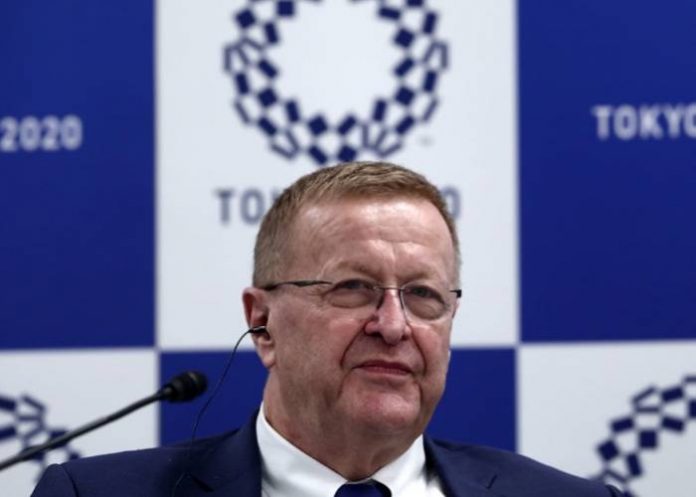
The International Olympic Committee on Wednesday backed calls by Japanese organisers to implement daylight savings time at the 2020 Tokyo Olympics as concerns mount over athlete safety in soaring temperatures.
The IOC coordination commission chief John Coates gave an unequivocal answer when asked if he supported an appeal made to Japanese Prime Minister Shinzo Abe last month following a deadly summer heatwave across the country.
“Yes — we’ve observed the discussions that are happening in this country,” Coates told a news conference.
“We’ve paid a lot of attention to heat, primarily on athletes but also on spectators,” he added after pleas to stage the events, particularly the marathon, in cooler hours.
“We know the marathon and those events are already starting early in the morning. But we certainly see the potential — with the sun coming up at 4.40am — for daylight savings.”
At least 120 people perished as a result of the blistering heat this summer and with the 2020 Olympics being held in late July and early August — Japan’s hottest time of year — there are fears that athletes and fans could be at risk.
“We understand that there are a lot of issues involved here, and there will be a lot of interest groups that will have a say in this,” said Coates. “But it does seem a very good solution to us.”
Japan was hit by further natural disasters this summer after a super typhoon killed 11 people last week, followed by a powerful earthquake in northern Hokkaido in which at least 40 more died.
Deadly weather
“These are very complex Games,” admitted Coates.
“What happened last week and what happened in Osaka earlier certainly hit home to me and the organising committee the further complexity of planning for these Games.
“They have to be prepared,” he added, comparing Japan’s vulnerability to deadly weather with the less complicated 2000 Sydney Olympics in his home country.
“In Sydney we had simulation exercises for what could go wrong but all the disasters we dreamt up — a train coming off the rails or someone bursting through and attacking the marathon runners.
“But you don’t have to dream anything up in this country, it’s very sad to say. But a lot of attention is being given to the weather and this is being factored into the planning. It’s certainly at the front of my mind.”
Meanwhile, the head of the local organising committee, Yoshiro Mori, announced that the Olympic flame would be lit in Ancient Olympia on March 12, 2020, with the handover to Tokyo taking place on March 19.
The flame will then make its way across the northeastern Japanese prefectures of Miyagi, Iwate and Fukushima, devastated by the March 2011 earthquake and tsunami, for six days beginning on March 20, Mori observed.
One Olympic baseball game and six softball games will also take place in Fukushima, and Mori also confirmed that finals for the Olympic swimming competition will be held in the morning — a move taken largely to accommodate American television rights holders.
Japan adopted daylight saving time in 1948 under US occupation after defeat in World War II but scrapped it four years later amid concerns it was encouraging longer work hours.



Comment here